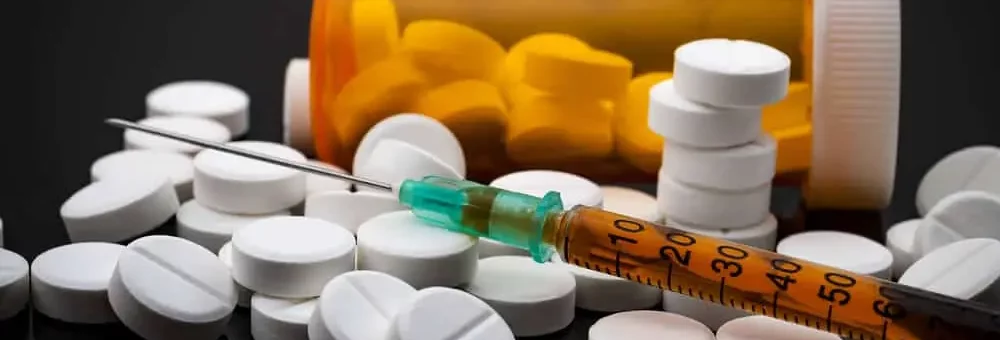
Telltale Signs of Opioid Use
Legacy Healing Center Blog
Is your loved one showing signs of opioid use? If this thought has crossed your mind, it is wise to learn some of the most common opiate abuse symptoms and how to help your friend or family member.
Sometimes it is difficult to determine if an individual is addicted to opiates because some people are better at hiding physical symptoms of drug abuse.
That being said, there are usually some telltale patterns and signs that should raise a red flag, regardless of how well someone thinks they are hiding the drug abuse.
There is hope!
Download our free Addiction Recovery Guide for Families and learn about addiction, how it’s treated, and how to heal for a more meaningful life.
Medical professionals typically refer to a set of criteria to determine if someone has a substance use disorder. Based on this criteria, which is set by the American Psychiatric Association, an individual must have experienced at least two of the following issues within the past 12 months.
As you read the following criteria, think back to some of the behavior and patterns you have noticed regarding your friend or loved one. Has he or she been showing clear signs of opioid use, such as:
• Using an opioid for a longer period of time than originally prescribed or taking it in larger quantities. Typically, opioids are prescribed in short-term doses – in some cases a few days and in others a week – and they are meant to be a short-term solution.
When someone is taking larger quantities than prescribed or continues using the drug on a regular basis, these should be considered clear opioid abuse symptoms.
• Another sign often seen is when someone is spending large blocks of their time trying to obtain more drugs, recovering from using, or using. It isn’t uncommon for someone addicted to opiates to also be spending a lot of money and time trying to obtain more drugs.
• Signs of opiate use and abuse can also be seen when someone is unsuccessful in quitting or controlling their substance use. Though one person may be able to quit relatively easily, another person may have an extremely difficult time stopping his or her opioid use. This can occur because psychological, genetic, and environmental factors can put someone at an increased risk of addiction.
• Intense cravings are another sign of opiate abuse symptoms. Even though someone may have had a bad experience the last time they used the drug, the drug can rewire the brain so to speak and cause the brain to send out signals that it needs more of the drug.
• Not keeping up with obligations or personal hygiene are other signs of opioid use. Substance abuse can lead to interrupted sleeping patterns, fatigue, malnourishment, etc.
All of these can lead to someone not keeping up on everyday responsibilities such as working, attending school, or taking care of his or her family. Drug use can also interfere with one’s desire to take care of him or herself – from not eating on a regular basis to not showering or brushing his or her teeth.
• Is your friend or loved one becoming hostile, irritable, aggressive or defensive when you mention you are concerned about them? Interpersonal problems with family, friends, and coworkers can also be an opiate abuse symptom.
• Another pattern to keep watch for is if your loved one begins skipping once-beloved hobbies or social activities. Abusing drugs tends to leave one isolated and withdrawn.
• Though someone may be able to hide physical symptoms for a time period, you may notice a change in their behavior. For example, they may be reckless when it comes to driving or they may be having unsafe sex. Simply put, if you notice a strange behavior that you have not seen your loved one exhibit in the past, it may be an opioid use symptom.
In addition to the above medical criteria, you will also want to keep an eye out for opiate withdrawal symptoms, which can occur within just a few hours after the last dose. Withdrawal signs to be on the lookout for include sweating, irritability, diarrhea, nausea, anxiety, depression, and intense cravings.
If you believe your loved one is suffering from opiate abuse symptoms, medications, therapy, and medical detox can help. Legacy Healing Center specializes in opioid addiction recovery. Reach out to us today at 888-597-3547 and find out about our treatment options and programs. Recovery is possible and the journey can begin with a simple phone call.
At Legacy Healing Center, our approach to recovery is built around a holistic methodology. We look at addiction as a comprehensive issue and offer a complete set of services to heal the physical body, the mind, and the spirit. Combining research-evidenced practices from medicine and psychology, our team of highly trained professionals looks at all aspects of our clients’ lives on an individual basis. Our holistic approach to healing encompasses more than dealing with addiction through primary treatment strategies like therapy and meetings. We offer a full range of services to heal the whole person, body, mind, and spirit.
